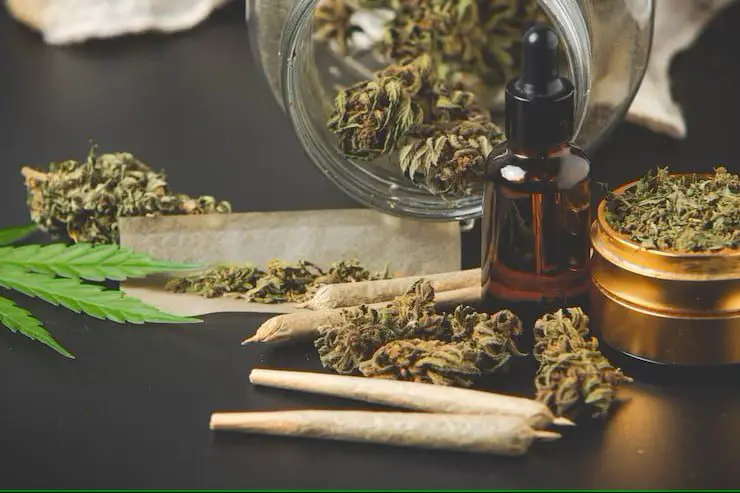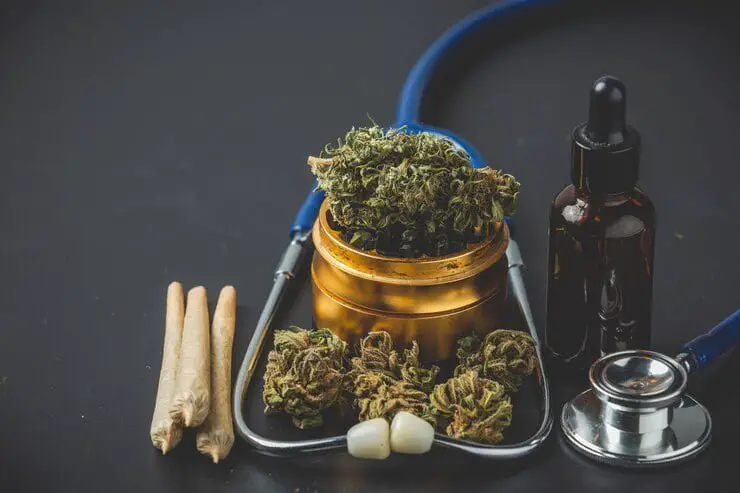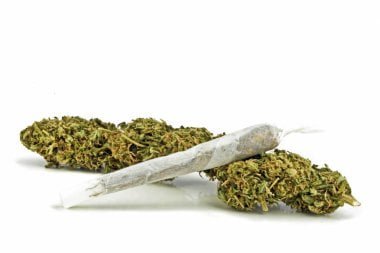Table of Contents
How Long weed stay in your system

What is Weed
Weed, also known as hemp, hashish, pot and ganja, is a plant that is widely used for recreational and medicinal purposes. Its active compounds, primarily THC, produce psychoactive effects that alter mood, perception, and cognition. Although weed offers potential health benefits such as pain relief and anxiety reduction, it also carries risks such as impaired memory, cognitive decline, and potential addiction with long-term use. Cannabis can be consumed in a variety of forms, including smoking, vaping, edibles and oils. Legal and medical use of weed is expanding globally, although regulations vary by region.
How long does weed stay in your system?
When you consume weed (cannabis), the active compound responsible for its psychoactive effects is THC (tetrahydrocannabinol). Once in the body, THC is absorbed into the bloodstream and stored in fat tissues. This slows its elimination, and detection depends on several factors, such as how often you use it, your metabolism, body composition, and the type of drug test. This article will explore how long weed lasts in your system based on these variables and the types of tests commonly used.

Factors affecting how long weed stays in your system
The amount of time the herb stays in your system is not the same for everyone. Several factors affect how quickly your body metabolizes THC and how long it remains detectable.
Frequency of Use
The more often you use cannabis, the longer it stays in your system. THC builds up over time, and it takes longer for the body to eliminate it. Here’s how it works based on frequency of use:
- occasional users (1-2 times a month): THC can remain detectable in urine for up to 3 days after last use. Because the body isn’t used to regularly ingesting THC, it clears it faster.
- Moderate Users (a few times a week): For moderate users, THC can stay in the system for 7-10 days. This is because THC gets stored in fat cells, and with repeated use, the body accumulates more of it, slowing down the elimination process.
- Chronic Users(Daily or Almost Daily): Regular users can expect THC to stay in their system for 30 days or more. This is due to the constant accumulation of THC in the body’s fatty tissues, which takes longer to clear completely.
metabolism
Your metabolism the speed at which your body processes and excretes substances—also plays an important role in how long weed stays in your system. If you have a fast metabolism, your body can break down THC more quickly, reducing detection time. Conversely, those with slower metabolisms can retain THC longer.
Factors such as age, genetics, diet, and physical activity can affect your metabolic rate. Young people with active lifestyles may process THC faster than older people or people with slower metabolic rates.
Body Fat
Because THC is fat soluble, it gets stored in your body’s fat cells. The more fat tissue you have, the longer it can take for THC to be released from your system. People with a higher body fat percentage retain THC longer than people with lower body fat, because THC is absorbed into fat cells and metabolized more slowly over time.
HYDRATION LEVE
Hydration can affect how concentrated THC metabolites are in your system. If you’re dehydrated, THC metabolites may be more concentrated in your urine, leading to a longer detection time. Staying hydrated helps your body flush toxins, including THC, more efficiently. Although it won’t speed up the process, drinking plenty of water can help your body’s natural detoxification process.
Detection windows for weed in various drug tests
Different drug tests detect THC for different periods of time. Some are more sensitive and have longer detection windows than others. Let’s look at the most common testing methods:
Urine Test
Urine tests are the most commonly used method to detect THC. Urine tests are preferred because they are relatively inexpensive, non-invasive, and long enough to detect weed. Here is a breakdown based on usage:
- occasional users: THC can be detected in urine for 3 days after last use.
- Moderate Users: People who use weed a few times a week can expect THC to remain detectable for 7-10 days.
- Chronic Users: Daily users may have THC detectable in their urine for 30 days or more depending on usage and other individual factors.
Blood Test
Blood tests detect the active presence of THC in your bloodstream, which means they are highly accurate for detecting recent weed use. However, THC leaves the bloodstream relatively quickly compared to other methods:
- occasional users: THC can be detected in the blood for 1-2 days after use.
- Repeat Users: For chronic or heavy users, THC can remain detectable in blood tests for up to 7 days, especially with continued use.
Blood tests are usually used in cases of suspected recent impairment, such as after accidents or for legal purposes. Because of their short detection window, they are rarely used in workplace drug testing.
Saliva Test
Saliva tests are also used to detect recent weed use, particularly in roadside drug tests. These tests are quick and non-invasive:
- occasional users: saliva tests can detect THC 24-48 hours after last use.
- Repeat Users: For chronic users, THC can be detected in the saliva for 72 hours or longer in some cases.
Sputum tests are becoming more popular due to their convenience and shorter detection windows, but are less effective at detecting long-term or past cannabis use.
Hair Test
The hair test has the longest detection window of all testing methods. THC metabolites are incorporated into hair follicles and can be detected for months after use:
- THC can be detected in hair for 90 days or longer depending on hair length and individual hair rate.
Hair tests are often used to detect long-term or habitual use rather than recent use. Because hair grows slowly, it provides a long history of drug use.
How Does Weed (Cannabis) Effects the body
Weed, commonly known as hemp or marijuana, has many effects on the body and mind. These effects may vary by individual, cannabis strain, and method of use.
Weed, or cannabis, has a range of effects that vary depending on individual factors and patterns of use. Short-term effects include euphoria, changes in sensory perception, and increased appetite, while long-term use can lead to cognitive impairment, respiratory problems, and possible mental health effects. Understanding these effects can help consumers make informed decisions about cannabis use and its effects on their health and well-being.
Here’s a detailed look at the short-term and long-term effects:
1. Short Term Effects of Weed (Cannabis)
1.1. joy and relief
One of the primary effects of weed is a sense of euphoria and relaxation. Users often report a sense of well-being and happiness, which can boost mood and reduce stress.
1.2. Altered sensory perception
Weed can enhance sensory experiences, making colors more vivid, sounds clearer, and tastes more intense. This altered perception can increase the enjoyment of various activities but can also lead to distortions in time perception.
1.3. increased appetite
Commonly known as “munchies,” weed often stimulates appetite, making users crave and consume more food. This effect may be beneficial for individuals with decreased appetite due to medical conditions.
1.4. Poor memory and concentration
Cannabis can temporarily impair short-term memory and concentration. Users may have difficulty recalling recent events or concentrating on tasks, which can affect daily activities and responsibilities.
1.5. Dry mouth and red eyes
A common side effect of weed use is dry mouth, often called “cotton mouth.” Additionally, bloodshot or red eyes are common, caused by dilated blood vessels.
1.6. Increased heart rate
Weed can cause an increase in heart rate, which can be noticeable to users. This effect is usually harmless but can occur in people with pre-existing heart conditions.
1.7. anxiety or restlessness
Some users may experience severe anxiety or panic attacks, especially if they use high doses or potent strains of cannabis. These feelings can vary widely across individuals and situations.
2. Long-term effects of Weed (Cannabis)
2.1. Dependence and Addiction
Although not as physically addictive as some other substances, long-term use of cannabis can lead to psychological dependence. Users can develop an addiction to the drug, which can affect their daily functioning and relationships.
2.2. cognitive impairment
Chronic cannabis use can lead to permanent cognitive impairments, including memory, attention and learning difficulties. These effects may be more pronounced in individuals who started using cannabis at a younger age.
2.3. Breathing problems
Smoking weed can irritate the lungs and airways, potentially leading to chronic bronchitis, coughing, and mucus production. The risk is higher than in non-smokers, but lower than the risk associated with smoking.
2.4. Mental health effects
Long-term cannabis use is associated with an increased risk of mental health problems such as depression, anxiety disorders and psychosis. People with a family history of mental illness or those who started using cannabis during adolescence are at greater risk.
2.5. Effect on Motivation
Some users report a loss of motivation and desire, often referred to as “emotional syndrome.” This effect may influence personal and professional goals, although this is still the subject of ongoing research.
2.6. Potential for legal and social consequences
In areas where cannabis use is illegal, long-term use can result in legal problems, including fines, criminal charges, or other consequences. Social implications can also arise, affecting relationships and employment opportunities.
How to get weed out of your system

If you’re trying to get weed out of your system, it’s important to understand that there is no magic solution. The body naturally metabolizes THC over time, but there are steps you can take to support this process:
Hydration
Drinking plenty of water is one of the easiest ways to help your body eliminate THC. While staying hydrated won’t dramatically speed up the detox process, it helps your kidneys and liver excrete THC metabolites more efficiently.
Exercise
Since THC is stored in fat cells, regular exercise can help release stored THC into the bloodstream, where it can be processed and eliminated. Cardiovascular activities such as running, swimming, or cycling are particularly effective at burning fat and increasing metabolism.
Healthy Diet
A balanced diet rich in fruits, vegetables and fiber can support your body’s natural detoxification process. Foods high in antioxidants, such as leafy greens and berries, can help improve liver function, helping to eliminate toxins.
Time
Ultimately, time is the most important factor in getting weed out of your system. The body will naturally break down and eliminate THC, but how long it takes depends on the factors we’ve discussed, such as frequency of use, metabolism, and body fat. Percentage of Giving your body enough time to clear THC naturally is the most reliable method of detoxification.
Frequently Asked Questions About Weed
Here is a Frequently Asked Questions (FAQ) section that addresses common questions about weed:
Q1: What is Weed (Cannabis)?
A: Weed, also known as cannabis or marijuana, is a plant that contains psychoactive compounds such as THC (tetrahydrocannabinol), which have a “high” effect. causes It is used for recreational, medicinal and industrial purposes.
Q2: How long does weed last in your system?
A: Detection time depends on factors such as frequency of use, body fat, metabolism, and type of drug test. Weed can be detectable in urine for 3-30 days, in blood for 1-7 days, in saliva for 24-72 hours, and in hair for up to 90 days.
Q3: What are the short-term effects of weed?
A: Short-term effects include euphoria, relaxation, altered sensory perception, increased appetite, and loss of memory or concentration. It may also cause anxiety or panic attacks in some users.
Q4: Can you overdose on weed?
A: Although the possibility of a fatal overdose on weed is extremely low, excessive use can cause uncomfortable symptoms such as severe anxiety, confusion, hallucinations, rapid heart rate. Palpitations, and nausea.
Q5: Is weed addictive?
A: Yes, weed can be addictive. Long-term use can lead to cannabis use disorder (CUD), where a person develops a psychological or physical dependence on the drug.
Q6: What are the long term effects of weed?
A: Long-term effects of chronic use include memory loss, decreased cognitive abilities, lung problems (if smoking) and increased risk of mental health disorders such as anxiety, depression, or psychosis. Risk may be involved, especially in vulnerable individuals.
Q7: Is medical weed legal?
A: Medical weed is legal in many countries and US states, where it is prescribed to treat conditions such as chronic pain, anxiety, epilepsy, and multiple sclerosis. Legislative rules vary from region to region.
Q8: Can weed impair driving?
A:Yes, weed impairs coordination, reaction time and judgment, making it dangerous to drive under the influence. Driving while high can lead to accidents and legal consequences.
Q9: How can I get rid of weeds?
A: Eliminating herbs involves abstinence from consumption, drinking water, exercising, and following a healthy diet. The body naturally metabolizes THC over time, but the process cannot be accelerated.
Q10: Is smoking the only way to consume weed?
A: No, weed can be consumed in a variety of forms, including edibles (food and beverages), tinctures, oils, vapes and topicals. Each method affects the body differently in terms of onset and duration.
Conclusion on Weed (Cannabis)
The length of time herbs stay in your system depends on several factors, such as frequency of use, body composition, metabolism, and hydration level. Different drug tests have different detection windows, with urine tests being the most common and hair tests the longest. For occasional users, THC can be eliminated from the system in a few days, while chronic users may take 30 days or more to clear THC from their body.
While staying hydrated, exercising, and eating a healthy diet can aid the body’s detoxification process, time is the most reliable factor in ultimately eliminating THC from your system. Whether you’re preparing for a drug test or just trying to understand how long weed can last in your body, being aware of these variables can help you make informed decisions. Read more about your health

